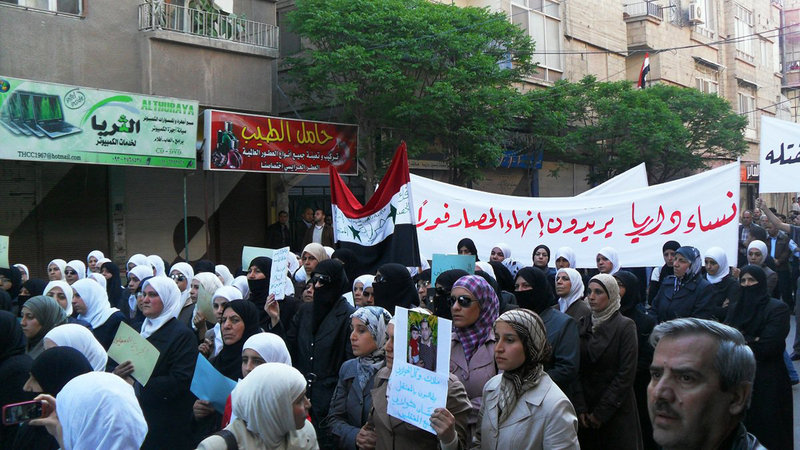WASHINGTON — Despite a ruthless crackdown on pro-reform demonstrators, there is no international appetite for a warlike approach to Syria
– a crucial Mideast playmaker with ties to Iran and a say in any eventual Arab peace with Israel.
In contrast with the quick international decision to launch an air campaign in nearby Libya, the United States is responding cautiously to mounting civilian deaths in Syria, preparing steps such as slapping new travel limits and financial penalties on Syrian leaders.
As violence escalated anew Monday, the White House stepped up its condemnation of President Bashar Assad’s regime, but stopped well short of demanding the ouster of a leader some U.S. Democrats had considered a potential reformer and peace broker.
U.S. officials said Washington has begun drawing up targeted sanctions against Assad, his family and inner circle to boost pressure on them to halt the repression.
Meanwhile, the United States also was conferring with European countries and with the United Nations about options for Syria, where more than 350 people have been killed in weeks of protests and government attempts to quell them.
Thousands of soldiers backed by tanks poured Monday into the city where the five-week-old uprising began, opening fire indiscriminately on civilians before dawn and killing at least 11 people, witnesses said.
Bodies were scattered in the streets. Widespread arrests appear to be an attempt to intimidate protesters and set an example for the rest of the country.
The offensive was planned in detail with electricity, water and mobile phone services cut off and knife-wielding security agents conducted house-to-house sweeps.
President Obama and Turkish Prime Minister Recep Tayyip Erdogan voiced their concern Monday during a telephone call over what the White House called “the Syrian government’s unacceptable use of violence against its own people.”
White House Press Secretary Jay Carney deplored the latest developments in Syria and said that sanctions against the Assad regime were a possible response “to make clear to the Syrian government that we believe it needs to cease and desist from the violence it’s been perpetrating against its own citizens.”
“Syria already is under some significant sanctions by the United States, but we’re looking at other means to increase the pressure on the regime and the Syrian government in a targeted way,” Carney said.
He declined to say whether Assad had lost the support of his people, saying “it is up to the people of Syria to decide who its leader should be. That’s what we believe.”
Assad appears dug in and prepared to risk international condemnation in order to squash dissent. He faces little danger of invasion or attack from outside his borders, largely because Syria’s neighbors and Western powers fear the consequences of war or the fall of the Assads after four decades of iron rule.
And unlike in Libya, there is little evidence of an organized rebel military faction that could take on Assad’s forces with help from outsiders.
And unlike in Libya, and even in Egypt, where a longtime ruler fell earlier this spring, what happens in Syria is likely to have a direct effect on Israel, the main U.S. ally in the Middle East.
The crackdown in Syria has ignited debate over whether Israel’s interests would be better served by the survival of the Syrian leader or the end of one of the most despotic regimes in the Middle East.
Copy the Story Link
Send questions/comments to the editors.



Success. Please wait for the page to reload. If the page does not reload within 5 seconds, please refresh the page.
Enter your email and password to access comments.
Hi, to comment on stories you must . This profile is in addition to your subscription and website login.
Already have a commenting profile? .
Invalid username/password.
Please check your email to confirm and complete your registration.
Only subscribers are eligible to post comments. Please subscribe or login first for digital access. Here’s why.
Use the form below to reset your password. When you've submitted your account email, we will send an email with a reset code.